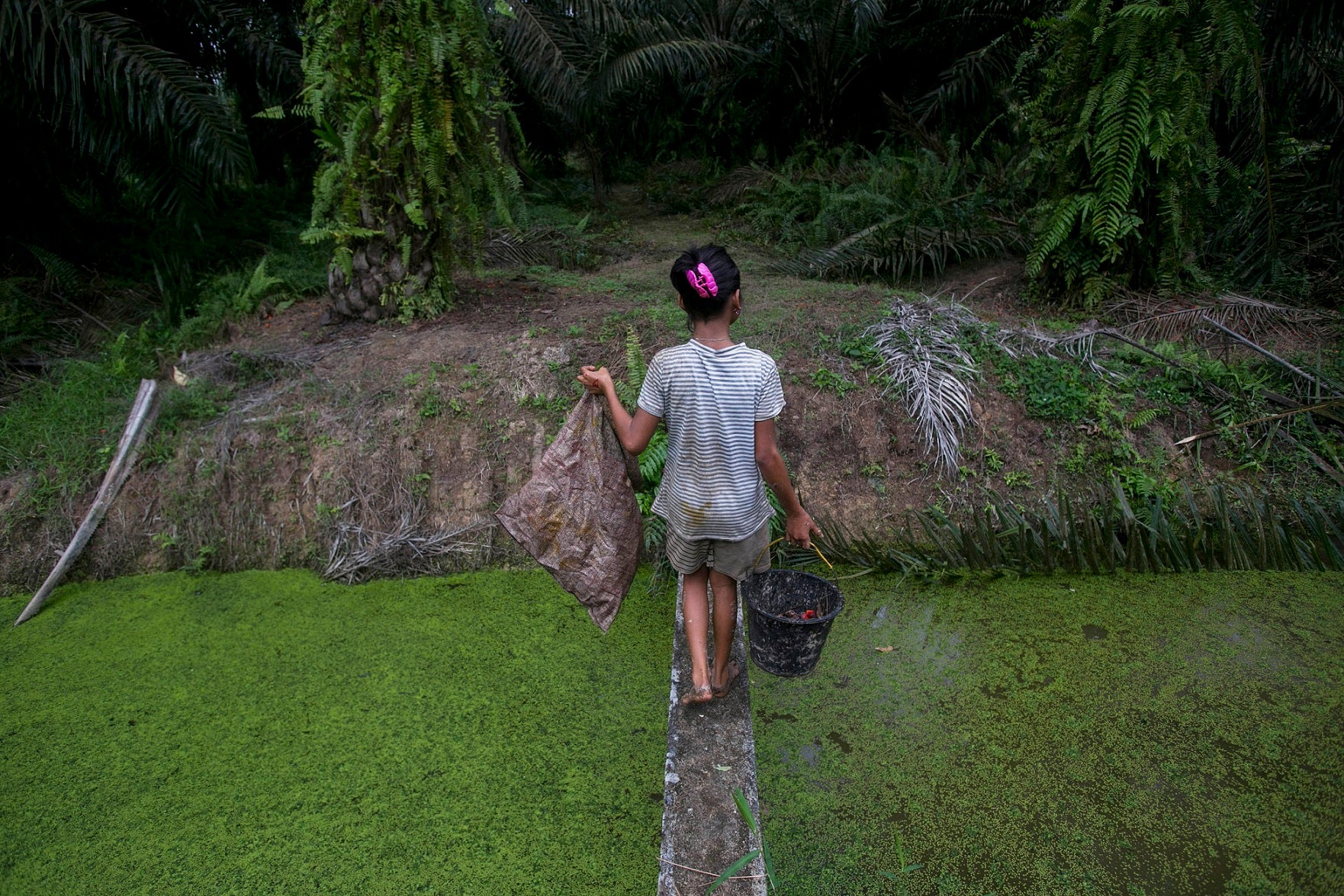What’s Needed for the COP26 ‘Forest Deal’ to Deliver for People and Planet
The United Kingdom and Indonesia are expected to announce a “Forest Deal” to end and reverse deforestation by 2030 on November 2 at the global summit on climate change.

Whether this is cause for celebration will depend on who will sign on to it, how ambitious its goals are, whether it centers human rights as a pillar for preserving forests, its accountability systems, and whether it signals increased ambition from previous initiatives. Deforestation is the second-largest source of greenhouse gas emissions, after the combustion of fossil fuels. Today, the leading driver of deforestation is industrial agriculture, and most forest clearance is presumed to be illegal. Preserving forests is fundamental to enable these ecosystems to continue performing their function as sponges that absorb and store carbon, regulate weather patterns, and provide for millions of peoples’ livelihoods.
The forthcoming deal follows months of opaque negotiations chaired by the UK and Indonesia under the Forest, Agriculture and Commodity Trade (FACT) Dialogue that began in February. It aimed at reuniting the world’s largest producers and consumers of agricultural commodities driving global deforestation. Civil society was invited to provide input through regional consultations but without direct interaction with public officials. It is unclear who has participated in the negotiations, except for a list of 25 countries that endorsed a joint statement on “principles of collaboration,” released in May and updated in July to add Germany. Other endorsements came from Brazil and Indonesia, the world’s top exporters of soy, cattle, and palm oil. On the list were also Cote d’Ivoire and Ghana, the West African nations that produce more than half the world’s cocoa beans. An earlier agreement, adopted in 2014, the New York Declaration on Forests, also promised to halve global deforestation by 2020 and end it by 2030. An official assessment from 2019 found there was “little evidence” that the signatories were on track to meet these goals. In 2015, several European countries reunited in the Amsterdam Declarations Partnership said they wanted to advance “deforestation-free, sustainable commodities,” and intended to support corporations to meet their goals of zero-deforestation supply chains, in particular for palm oil. Progress in implementation is apparently limited, since industrial agriculture remains the leading cause of deforestation. In addition to chairing the FACT Dialogue, the UK is a signatory to both initiatives. In an effort to showcase leadership at COP26, Boris Johnson’s government also introduced a bill that could restrict the import of agricultural commodities issued from illegal deforestation, which parliament recently adopted.
The bill’s scope and effectiveness is yet to be determined by regulations the executive will adopt, and that will decide on the commodities covered by the law, the size of businesses to which the law applies, and whether it requires businesses to respect Indigenous peoples’ land rights, which have been repeatedly trampled on by agribusiness. What does the deal need to include to deliver impact? In terms of participants, it is crucial that it includes China, whose imports alone drive 24 percent of global tropical deforestation linked to international trade, according to a study by conservation group WWF, based on data compiled by the Stockholm Environment Institute (SEI). Rumors that Brazil could sign on are notable, given the disastrous environmental record of President Jair Bolsonaro’s government, who has openly advocated for miners, loggers, and other groups that illegally exploit the vast Amazon rainforest resources. Brazil would be a key participant, holding 12 percent of the world’s forest resources, second only to Russia, but its pledges are difficult to believe given its government’s efforts to sabotage environmental law enforcement. Other than securing the relevant signatories, the agreement should also center human rights, and, in particular, advance Indigenous peoples’ rights to their lands. In country after country, deforestation rates are lower in lands held by Indigenous and local communities. In Bolivia, the rate of deforestation on lands securely held by Indigenous peoples is about 35 percent of what it is in other comparable areas, in Brazil it is 40 percent, and in Colombia half. Studies in Asia and Africa suggest that strengthening protection for communities’ land rights also leads to regeneration of degraded forests. Any agreement on forest preservation needs to acknowledge this evidence and commit resources to advance rights.
The agreement should signal support for laws that restrict imports linked to deforestation and human rights abuses, which would be enforceable, and could deliver progress and provide a commercial incentive to green supply chains. Finally, the Forest Deal should commit to goals that are more ambitious, rather than simply duplicate past pledges to end deforestation by 2030. This could include participants’ commitments to concrete short- and long-term targets to reduce deforestation, enacting and enforcing moratoriums on clearing primary forests; to advance the titling and demarcation of Indigenous territories, and enact legal frameworks to advance these rights in countries that haven’t; and investigate and prosecute violence and intimidation against forest defenders. .
Read the full article at the original website
References:
- https://www.forest-trends.org/publications/illicit-harvest-complicit-goods/
- https://forestdeclaration.org/about/
- https://forestdeclaration.org/resources/protecting-and-restoring-forests/
- https://resources.trase.earth/documents/issuebriefs/TraseIssueBrief1EN.pdf
- https://bills.parliament.uk/bills/2593
- https://www.fern.org/publications-insight/uk-due-diligence-legislation-where-do-we-go-from-here-2395/
- https://www.hrw.org/report/2019/09/23/when-we-lost-forest-we-lost-everything/oil-palm-plantations-and-rights-violations
- https://thediplomat.com/2021/10/without-china-efforts-to-reverse-deforestation-will-fail/
- https://www.bbc.com/portuguese/brasil-59065364
- https://www.hrw.org/news/2021/11/01/cop26-dont-be-fooled-bolsonaros-pledges
- https://www.hrw.org/news/2021/08/09/supply-chain-laws-fight-deforestation-must-back-indigenous-rights
